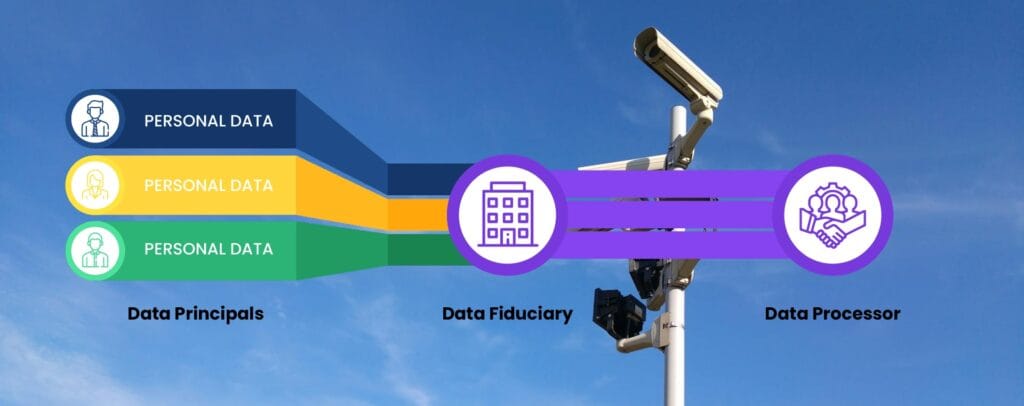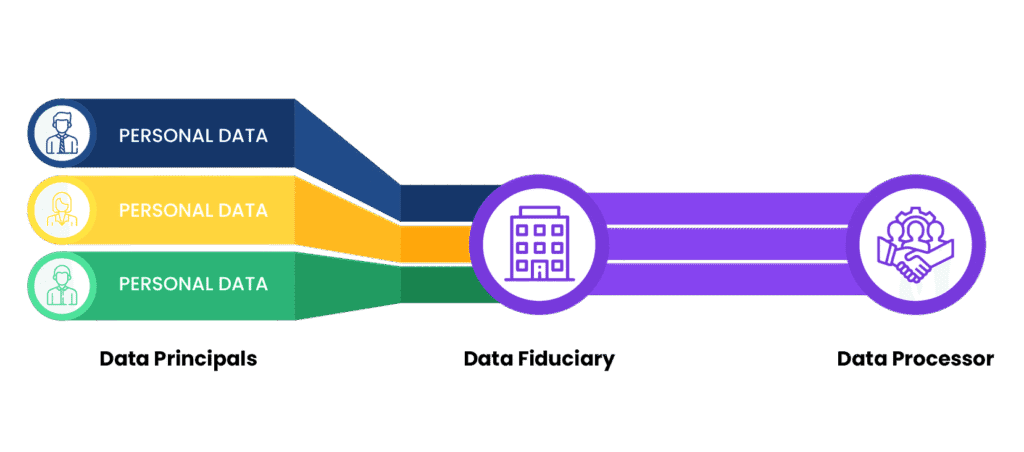
Two years ago, I was consulting for a booming HealthTech startup. We had solid growth, glowing customer reviews, and what we thought was airtight backend security.
Then came the nightmare: a misconfigured database exposed thousands of user records. The startup was served a compliance notice under the IT Act — and by 2025 standards, the DPDP Act would’ve hit them with a fine 10x that amount.
That experience jolted me.
I pivoted hard into privacy compliance consulting — and started building practical, scalable frameworks that Indian businesses could use to get and stay compliant. Since then, I’ve worked with 100+ startups and SMEs across sectors to roll out data protection compliance services that go beyond paperwork.
In this post, I’ll share everything I’ve learned — so your business doesn’t learn the hard way like we did.
Why Data Protection Compliance Services Matter More Than Ever in India?
The Digital Personal Data Protection Act (DPDP) has completely changed how businesses in India are expected to handle customer data.
But it’s not just about this one law.
India now has a web of regulations related to privacy, cybersecurity, and sector-specific data governance:
- DPDP Act, 2023–25
- CERT-In Guidelines
- IT Rules 2021
- NHB, IRDAI, RBI Cybersecurity Mandates
- SEBI’s ESG and BRSR data disclosure policies
What Does That Mean for You?
If you’re collecting, storing, or processing personal data — you’re legally required to:
- Get informed consent
- Limit data collection and retention
- Implement role-based access
- Create breach response protocols
- Provide grievance redressal
- Enable data portability and erasure
And if you don’t? You risk:
- ₹10 lakh to ₹250 crore in fines
- Contract losses (especially with global clients)
- Irreparable brand damage
Data protection compliance services are no longer optional — they’re the difference between scaling or sinking.
What Are Data Protection Compliance Services?
Let’s demystify this.
“Compliance services” aren’t just templates and PDF policies. Done right, they’re full-lifecycle frameworks that cover your technical stack, internal processes, and user-facing touchpoints.
Core Components of Indian Data Protection Compliance:
| Element | What It Covers |
|---|---|
| Data Mapping | Understand what personal data you collect, why, and how |
| Consent Management | Make consent granular, informed, and revocable |
| Policy Drafting | Privacy policy, cookie policy, grievance SOPs |
| Technical Safeguards | Encryption, access logs, breach alerts |
| Team Training | DPO roles, employee awareness, internal audit readiness |
| Audit & Certification | Readiness checks and certification for DPDP or global standards (e.g., ISO 27701, GDPR) |
A strong compliance service blends legal clarity with technical depth.
What Our Data Protection Compliance Service Looks Like?
At Prgenix, we’ve created a DPDP-aligned 7-step compliance rollout model designed for Indian companies across sectors.
Here’s how it works:
Step 1: Readiness Gap Assessment
We audit your current systems, processes, and policies against DPDP, CERT-In, and sectoral guidelines. This forms your baseline score.
🎯 Example: We recently found a fintech app had 3 unencrypted S3 buckets with over 90K customer records.
Step 2: Data Flow & Access Mapping
We create detailed maps of:
- What data you collect
- Where it’s stored
- Who can access it
- Which 3rd parties process it
We’ve caught clients using random SaaS tools (like Typeform or Zapier) with zero compliance contracts.
Step 3: Consent Framework Redesign
We update all user touchpoints — web forms, cookies, app permissions — with dynamic, DPDP-ready consent modules.
⚖️ Key: Consent should be revocable and granular (e.g., email but not WhatsApp).
Step 4: Policy & Process Alignment
We rewrite your privacy policy in plain English, add internal SOPs for grievance redressal, and prepare DPIAs (Data Protection Impact Assessments) where needed.
Step 5: Security Controls Setup
We coordinate with your tech teams to implement:
- Role-based access
- Encryption protocols
- Automated deletion and backup policies
- Real-time alert systems
Step 6: Team Training & DPO Deployment
We run live training sessions for operations, dev, sales, and marketing. We also help onboard or upskill your Data Protection Officer.
Step 7: Certification & Mock Audits
We simulate real audits — including breach response within 72 hours. Then issue a Data Protection Compliance Certificate valid for 1 year.
How We Helped an Online Pharmacy Scale Safely?
Client: Growing B2C HealthTech platform (5M+ user base)
Challenge: Expanding to GCC markets; failed due diligence over privacy concerns
What We Did:
- Rebuilt privacy & consent flow for teleconsultations
- Set up AWS-based access control and logging
- Integrated breach alert triggers
- Deployed a fractional DPO via Prgenix
- Ran 3 mock audits with international auditors
Result:
- Passed compliance with India + UAE requirements
- Signed a ₹12.4 crore partnership deal
- Zero data-related grievances for 8 months post-certification
Advanced Tips for Ongoing Compliance Success
Getting compliant is step one. Staying compliant is the game.
✅ Tip 1: Treat Privacy as a Product Feature
Build it into your roadmap — not just your legal doc.
Example: One client added “Erase My Data” to their mobile app — and users loved it.
✅ Tip 2: Watch 3rd-Party Integrations
From chatbots to CRMs — every tool needs compliance clauses. Use data processing agreements (DPAs) and check their data flows.
✅ Tip 3: Automate Retention Policies
Use backend rules to auto-delete personal data after the stated period — e.g., delete KYC data after 3 years.
✅ Tip 4: Conduct Quarterly Privacy Check-Ins
Assign internal champions in each department. Compliance is everyone’s job.
✅ Tip 5: Use Compliance as a Sales Advantage
Display your certification in proposals. We’ve seen clients win RFPs just by showing privacy maturity.
5 Frequently Asked Questions About Data Protection Compliance Services in India

1. What laws must Indian businesses comply with for data protection?
The primary law is the DPDP Act, 2023–25, along with CERT-In cybersecurity guidelines, IT Rules 2021, and sector-specific mandates.
2. Is it necessary to hire a data protection consultant or firm?
Not legally required, but highly recommended — unless you have an in-house legal + tech compliance team.
3. How much do data protection services cost in India?
Typically ₹50,000 to ₹5 lakhs depending on company size, industry, and scope. Ongoing DPO services may be extra.
4. Will this help me with international compliance like GDPR?
Yes — many principles overlap. A good Indian service provider will map your compliance across multiple frameworks.
5. What if we’re already using Google Cloud, AWS, or Azure — aren’t they secure?
Infrastructure alone doesn’t equal compliance. Your use, access policies, and breach protocols still matter.
Privacy is Now a Business Necessity — Not Just a Legal Checkbox
In 2025, data protection isn’t optional. It’s the foundation of customer trust, investor confidence, and market access.
I’ve seen small firms get buried in fines and large firms lose deals — all because they delayed compliance.
Don’t wait for a breach or a legal notice. Be proactive. Partner with a data protection compliance service provider who actually understands your risks and helps you fix them.
GET PRIVACY RIGHT